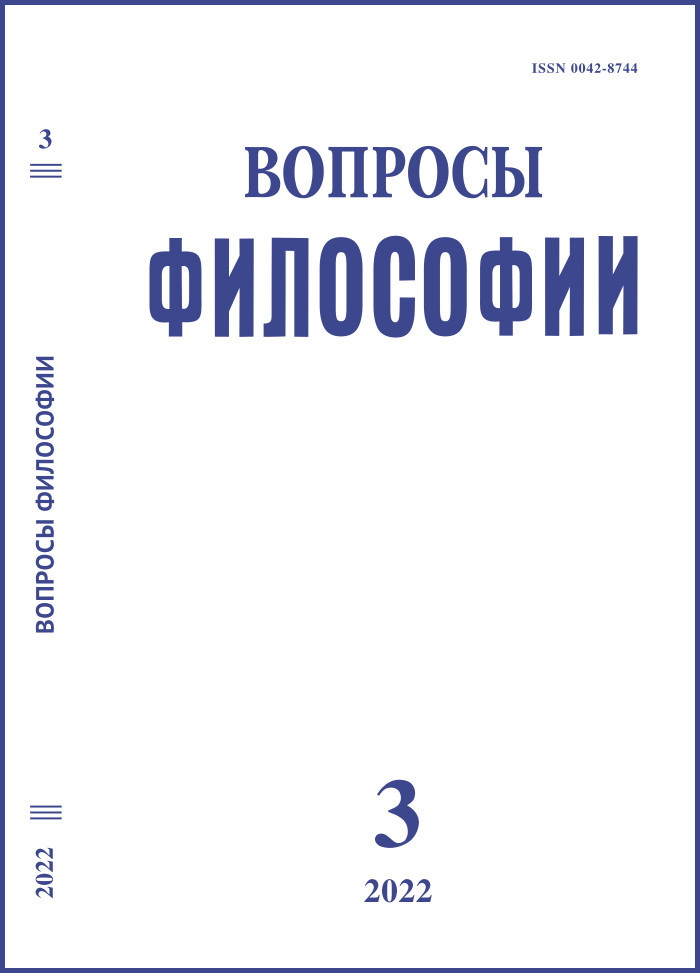Hard Problem of Illusion
DOI:
https://doi.org/10.21146/0042-8744-2022-3-106-109Keywords:
consciousness, philosophy of consciousness, hard problem of consciousness, illusionism, theory of consciousness, qualia, phenomenal properties, phenomenal consciousness, K. Frankish.Abstract
The hard problem of consciousness, which consists in the need for a non-functional explanation of subjective experience as a possibility to have subjective experience at all, while focusing on attempts to give this explanation, often loses sight of consciousness itself and its phenomenality, the real way of existence of which is assumed as a given. Illusionism replaces the hard problem of consciousness with the problem of illusion, which implies the need to explain how and why judgments about phenomenal consciousness are possible. Thus, illusionism as a theory of consciousness looks primarily at consciousness itself, taking into account another possibility of explaining its existence – an illusion, a belief caused by the disposition to form such a belief and its formation in the course of introspective distortion of internal states during the process of their representation. That is, the internal states themselves are not illusory – they exist. But we systematically distort them. In this regard, qualia, along with consciousness, become an illusion, which is formed by a person based on these dispositions, which determine the qualitative part of our perception. Illusionism can become a tool for explaining not only the possibilities of qualia, but also why they are largely individual.
Published
Versions
- 2025-02-06 (2)
- 2022-03-31 (1)

